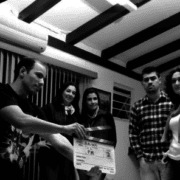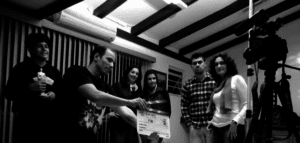That’s a wrap! How to Make your Video Audition Tape Stand Out
There are so many social media platforms that currently exist for actors and musicians to engage friends and followers on. Just consider for a moment the social media accounts you follow, particularly Facebook and Instagram. Your favorite pages are likely filled with staged or stylized shots, images of their lives that instantly make the person more appealing. It’s images like these that not only make you their devoted fan and follower, but that are inspirational to countless aspiring actors like yourself.
But posing for a beautiful picture, where you can determine and manipulate the lighting, angles, and background, is an entirely different thing than appearing on an audition tape. That is a whole other level when it comes to making sure you, an actor, are perfectly presented.
Here are a few of our favorite ways to make sure your audition tape is a powerful representation of who you are as an artist:
1) Get the Technical aspects right
Make sure that your tape is not only well lit, but that you have the proper sound equipment so you can easily be heard. There’s nothing worse than a casting director clicking on your footage, finding the sound is too low, and immediately dismissing you and moving on to the next actor.
That’s why you need to gather a quality camera with a built-in microphone, a basic tripod, lighting equipment (or use natural lighting), a solid background color, and a reader. Test your equipment properly before you push record.
2) Get to Know the Script
Although you must know the script like the back of your hand during your audition tape, it’s still important to have it on hand. Doing this will signal to the casting director that while you are an actor that is prepared, that you are treating your performance as a work in progress. You must convey that you will never stop working on and perfecting your craft.
3) Forget the Slate
This is a common mistake, but unless specifically instructed to, don’t slate for a self-taped audition. It’s another easy way to make your audition tape stand out from the rest.
Every actor knows how important it is to stand out from the rest, how there is never a time where their unique beauty and poise must be showcased in the best possible way. By following these best practices, you’ll guarantee that your audition tapes get you noticed and allow you to be successful in this competitive yet wonderful field.
For more helpful tips on making your audition tape stand out, contact CGTV at 818-847-6689 or email us at hollywood@cgtv.la. We’d be honored to help turn your dreams into a reality.





















